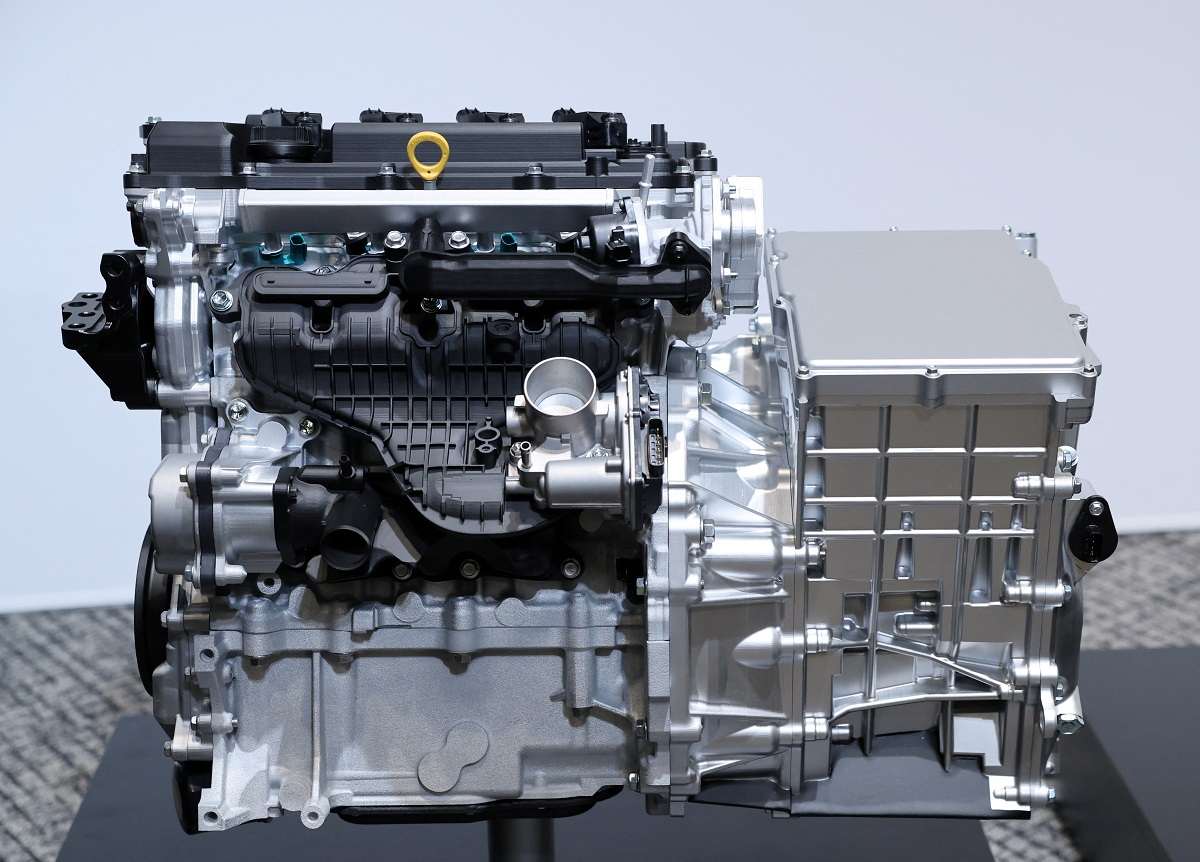
Toyota’s engine is displayed at a press conference with Subaru and Mazda, in Tokyo, Japan May 28, 2024.
15:58 JST, May 28, 2024
TOKYO (Reuters) – Toyota Motor showcased next-generation engines on Tuesday that can be used in cars as varied as hybrids and those running on biofuel, as it targets tougher emissions standards and doubles down on its strategy of selling more than just EVs.
At a media event with peers Subaru and Mazda Motor, the world’s biggest automaker by volume displayed in-development 1.5 liter and 2.0 liter engines with significantly reduced volume and height versus current engines.
“With these engines, each of the three companies will aim to optimize integration with motors, batteries, and other electric drive units,” they said in a joint statement. Toyota owns about a fifth of Subaru and roughly 5% of Mazda.
The three said their efforts will help decarbonise internal combustion engines by making them compatible with alternative fuel sources such as e-fuels and biofuels.
Toyota, which has benefited from an uptake of petrol-electric hybrids in markets such as the U.S. after drivers cooled on electric vehicles, hopes a more compact engine will revamp vehicle design by allowing for lower hoods.
It said its new 1.5 liter engine will achieve volume and weight reduction of 10% of versus its existing 1.5 liter engines, which it uses in cars such as its Yaris compact.
The new 2.0-liter turbo engine will have similar gains versus existing 2.4 liter turbo engines used in bigger models such as three-row seating sport utility vehicles.
Chief Technology Officer Hiroki Nakajima declined to say when Toyota will launch models equipped with the engines.
Automakers face tougher emissions standards in markets such the European Union where policymakers are working toward emissions rules known as “Euro 7” for cars and vans from 2030, before banning sales of new CO2-emitting cars from 2035.
While electric vehicles have become more prominent in recent years, Toyota has been following a “multi-pathway” approach to carbon neutrality with vehicles offering a range of powertrains.
It sold about 2.4 million vehicles in January-March of which nearly two-fifths were petrol-electric hybrids. Plug-in hybrid, fuel-cell and all-battery electric vehicles together accounted for just 2.9%.
Chairman Akio Toyoda in January said EVs would reach a global auto market share of 30% at most, with hybrids, hydrogen fuel-cell and fuel-burning vehicles making up the rest.
Top Articles in News Services
-

Survey Shows False Election Info Perceived as True
-

Hong Kong Ex-Publisher Jimmy Lai’s Sentence Raises International Outcry as China Defends It
-

Japan’s Nikkei Stock Average Touches 58,000 as Yen, Jgbs Rally on Election Fallout (UPDATE 1)
-

Japan’s Nikkei Stock Average Falls as US-Iran Tensions Unsettle Investors (UPDATE 1)
-

Japan’s Nikkei Stock Average Rises on Tech Rally and Takaichi’s Spending Hopes (UPDATE 1)
JN ACCESS RANKING
-

Producer Behind Pop Group XG Arrested for Cocaine Possession
-

Japan PM Takaichi’s Cabinet Resigns en Masse
-

Man Infected with Measles Reportedly Dined at Restaurant in Tokyo Station
-

Israeli Ambassador to Japan Speaks about Japan’s Role in the Reconstruction of Gaza
-

Videos Plagiarized, Reposted with False Subtitles Claiming ‘Ryukyu Belongs to China’; Anti-China False Information Also Posted in Japan

























